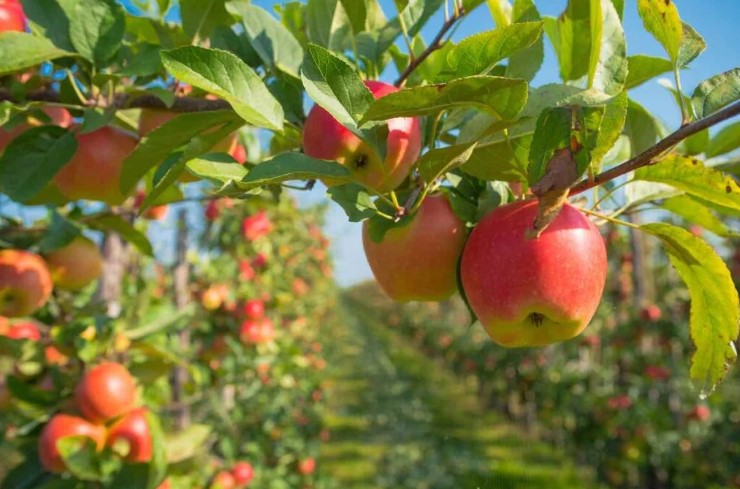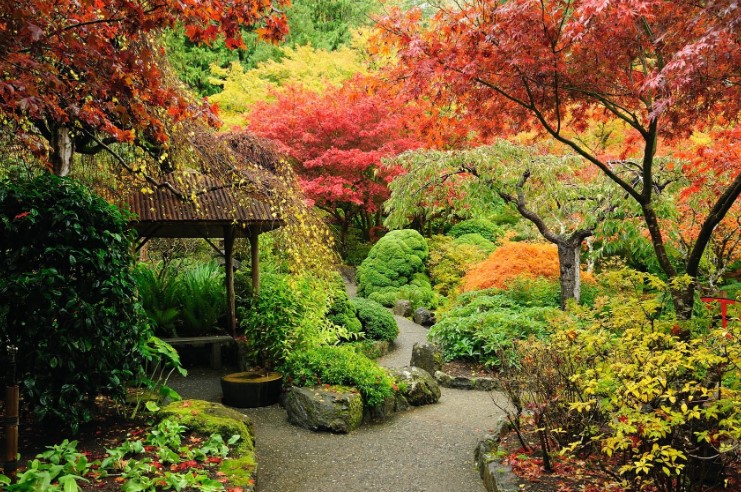
In the rich tapestry of British horticultural history, traditional fruit tree varieties hold a special place. These heritage orchards are a testament to the agricultural heritage of the UK, representing a legacy of diverse and unique fruit tree varieties that have stood the test of time. In a recent interview with CRJFruitTrees experts, we explored the significance of the UK’s heritage of fruit tree varieties and the importance of preserving them in modern times. Join us as we delve into the world of heritage orchards, uncover their cultural and ecological value, and discover the efforts to revive these traditional fruit tree varieties.
UK’s Heritage of Fruit Tree Varieties:
According to CRJFruitTrees experts, the UK boasts a rich heritage of fruit tree varieties that have been cultivated and enjoyed for generations. These traditional varieties have been carefully selected and nurtured over centuries, adapting to local climates and specific growing conditions. They represent a treasure trove of genetic diversity and cultural significance.
One notable example is the ‘Cox’s Orange Pippin’ apple, which has become an iconic symbol of British orchards. This apple variety, known for its exceptional flavor and aromatic qualities, has a storied history dating back to the early 19th century. With its crisp and juicy texture, balanced sweetness, and hints of honey and citrus, the Cox’s Orange Pippin apple continues to be cherished by fruit enthusiasts and connoisseurs alike.
Another renowned heritage fruit tree variety in the UK is the ‘Conference’ pear. This pear variety, introduced in the late 19th century, has become a staple in British orchards. The Conference pear’s elongated shape, crisp texture, and sweet, juicy flesh have made it a favorite for fresh consumption and culinary uses. Its popularity and enduring presence in orchards across the country highlight its significance as a traditional fruit tree variety.
Preserving Traditional Fruit Tree Varieties:
The preservation of traditional fruit tree varieties is crucial for multiple reasons. Firstly, these heritage orchards represent living repositories of genetic diversity. Traditional varieties often possess unique characteristics and flavors that have been lost in the quest for mass production and standardized fruit. By preserving these heritage varieties, we ensure the continuation of diverse genetic resources that can be tapped into for future breeding programs and the development of new cultivars with improved traits.
Furthermore, heritage orchards play a vital role in maintaining biodiversity and supporting local ecosystems. These orchards provide habitats for various wildlife, including birds, bees, and other pollinators. The diverse range of tree species and associated flora in heritage orchards creates a balanced ecosystem, contributing to the overall health of the environment. Preserving traditional fruit tree varieties helps sustain these ecosystems and fosters a sense of connection to the natural world.
Reviving Heritage Orchards:
Efforts to revive and restore heritage orchards have gained momentum in recent years. Organizations, enthusiasts, and communities have come together to safeguard and promote traditional fruit tree varieties. The preservation of heritage orchards involves activities such as identifying and documenting rare varieties, conserving genetic material through grafting and propagation, and creating awareness and appreciation for these unique fruit trees.
One inspiring example is the National Fruit Collection, located in Brogdale, Kent. This collection houses over 4,000 fruit tree varieties, including numerous heritage varieties. The collection serves as a valuable resource for researchers, breeders, and fruit enthusiasts, preserving rare and endangered fruit tree varieties for future generations.
Furthermore, community-led initiatives have emerged, focusing on restoring neglected orchards and encouraging the planting of traditional fruit trees. These endeavors not only revive the cultural heritage associated with orchards but also contribute to local food production, enhance landscapes, and promote sustainable practices.
The revival of heritage orchards goes hand in hand with the promotion of traditional fruit tree varieties. Gardening societies, educational institutions, and heritage organizations play a significant role in raising awareness and providing resources to support the preservation and cultivation of these unique fruit trees. Workshops, training programs, and orchard festivals are organized to educate and engage people in the beauty and importance of heritage orchards.
Conclusion:
Reviving heritage orchards and preserving traditional fruit tree varieties is a vital endeavor that safeguards our agricultural heritage, promotes genetic diversity, and supports local ecosystems. The UK’s rich heritage of fruit tree varieties, such as the Cox’s Orange Pippin apple and the Conference pear, are treasured symbols of our horticultural history.
By valuing and nurturing these traditional fruit trees, we embrace the diversity and cultural significance they represent. Let us celebrate and support the revival of heritage orchards, ensuring that future generations can enjoy the flavors, aromas, and stories of these timeless fruit tree varieties. Through our collective efforts, we can preserve the legacy of our orchards, fostering a sustainable and fruitful future for the UK’s horticultural heritage. Together, let us revive the splendor of heritage orchards and continue the legacy of traditional fruit tree varieties for generations to come.
Heritage orchards not only serve as a living museum of our agricultural past but also provide valuable opportunities for research and education. Researchers and breeders can study these traditional fruit tree varieties to uncover valuable traits and characteristics that can be utilized in modern breeding programs. By combining the genetic diversity of heritage varieties with modern cultivation techniques, we can develop fruit tree cultivars that are well-suited to the challenges of contemporary agriculture, such as disease resistance, climate resilience, and improved yield.
In addition to their genetic value, heritage orchards hold immense cultural significance. They are a part of our national identity, evoking a sense of nostalgia and connecting us to our roots. The sight of blossoming apple https://www.fruit-trees.com/buy-fan-espalier-apple-trees-online.html and pear trees in an old orchard, the sound of buzzing bees and birdsong, and the sweet scent of ripe fruits all contribute to a sensory experience that transports us to a bygone era.
Preserving traditional fruit tree varieties also supports local economies and sustainable food systems. By cultivating and consuming locally grown heritage fruits, we reduce our reliance on imported produce and support local farmers and growers. This not only helps in maintaining a sense of food security but also strengthens community ties and fosters a connection to the land.
To promote the revival of heritage orchards, there is a need for collaboration between individuals, communities, and organizations. Local authorities can play a significant role in providing land and resources for orchard restoration projects. Schools and educational institutions can integrate orchard conservation into their curricula, educating young generations about the importance of preserving our agricultural heritage.
In conclusion, reviving heritage orchards and preserving traditional fruit tree varieties is a noble pursuit that encompasses genetic diversity, cultural heritage, and sustainable agriculture. By valuing and nurturing these living treasures, we ensure the continuation of our horticultural legacy for future generations. Let us embrace the beauty and richness of our heritage orchards, savor the unique flavors of traditional fruit tree varieties, and sow the seeds of a fruitful future. Together, we can preserve our agricultural heritage and celebrate the resilience and diversity of our traditional fruit trees.
